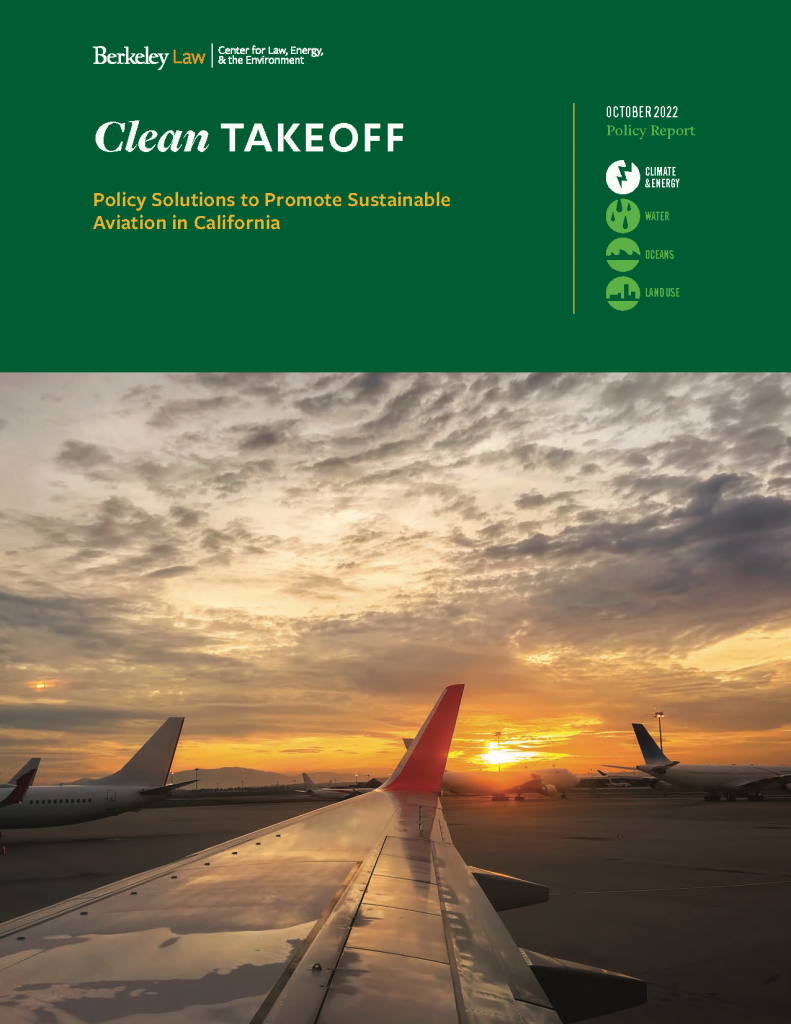
I’ll be guest hosting today’s Your Call’s Media Roundtable, where we’ll talk about what the midterm election means for President Biden’s climate and clean energy agenda, including investments in alternative sources of energy that are clean, accessible, affordable and sustainable.
This topic is especially timely given the runoff election victory this week for Georgia senator Raphael Warnock, plus Arizona senator Krysten Sinema’s announcement this morning that she’s leaving the Democratic party.
Joining us will be:
- Marianne Lavelle, award winning reporter covering environment, science, law, and business for InsideClimate News
- Jason Mark, editor of Sierra and the author of Satellites in the High Country: Searching for the Wild in the Age of Man
Then at 10:30am PT, we discuss two cases in front of the Supreme Court this week that could have major impacts on LGBTQ rights and federal election rules. The case 303 Creative v. Elenis involves a challenge by a Colorado website designer to a state law that bars public-facing businesses from discriminating against gay people or announcing their intent to do so. The designer, Lorie Smith, argues that subjecting her to the law would violate her right to free speech. The justices also considered Moore v. Harper, a case that would give state lawmakers unfettered power to set rules for voting and elections, without state constitutional limits.
Joining us to analyze the potential impact of these two cases will be Mark Joseph Stern, a senior writer covering courts and the law for Slate Magazine. Mark has covered the U.S. Supreme Court, federal appellate and district courts, and state and local courts since 2013.
Tune in at 91.7 FM in the San Francisco Bay Area or stream live at 10am PT. What comments or questions do you have for our guests? Call 866-798-TALK to join the conversation!

I’m guest hosting Your Call’s One Planet Series today, where we’ll discuss the state of the Colorado River under severe drought conditions. 40 million people depend on the river, as one of the most important water sources of freshwater in the country. But its flows have decreased 20 percent in the last 30 years. Joining us to discuss its current conditions and potential future will be Alex Hager, water and environment reporter covering the Colorado River basin for KUNC.
Then later in the program, we’ll cover the mini-art exhibit Kelp! currently running at 836M gallery in North Beach in San Francisco. It brings attention to one of the most beautiful and often overlooked ocean flora in northern California. Joining us will be:
- Josie Iselin, fine art photographer, and author of The Curious World of Seaweed
- Tristin Anoush McHugh, ecologist, kelp forest restoration practitioner, and the Kelp Project Director with The Nature Conservancy
Tune in at 91.7 FM in the San Francisco Bay Area or stream live at 10am PT. What comments or questions do you have for our guests? Call 866-798-TALK to join the conversation!
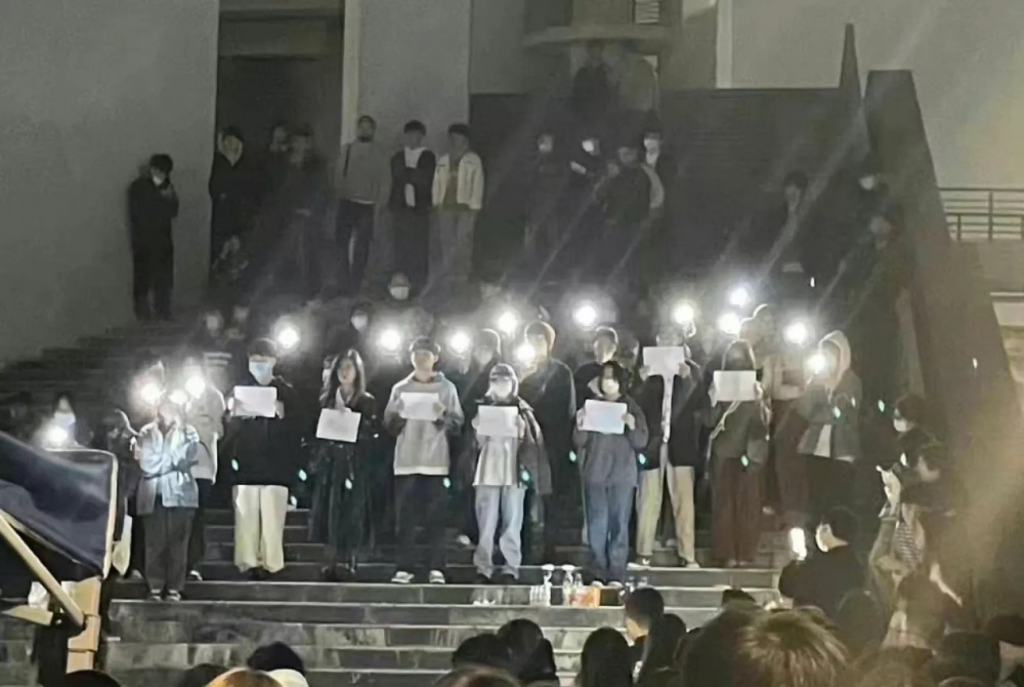
I’m guest hosting today’s Your Call, where for the first half hour we’ll cover the widespread protests in China over the country’s zero-Covid policy and how the government is using its vast security and mass surveillance system to stifle the protests. We’ll be joined be Jiayang Fan, staff writer at The New Yorker.
Then in the second half of the program, we’ll discuss a recent Propublica investigation about the growing and profitable hospice industry. At the start of this century, for-profit providers made up 30% of the field. But today, they represent more than 70%, tripling between 2011 and 2019 alone. Companies in the hospice business can expect some of the biggest returns for the least amount of effort of any sector in American health care, according to Propublica. Joining us is the author of the report, Ava Kofman, a reporter on ProPublica’s national desk.
Tune in at 91.7 FM in the San Francisco Bay Area or stream live at 10am PT. What comments or questions do you have for our guests? Call 866-798-TALK to join the conversation!

On today’s Your Call at 10am PT, we’ll discuss the California Coastal Commission’s recent approval of a controversial desalination plant in Monterey County. The plan was approved 9 years after it was first proposed, following 13 hours of debate at a public hearing.
Proponents of the plan view desalination as a critical source of drinking water in a drought-starved region. Environmental justice advocates argue the plant could raise costs for low income residents and harm marine life and other wildlife habitats.
What is the future for desalination in the west, during an era of climate-induced mega-droughts? Joining us will be:
- Newsha Ajami, hydrologist and director of Urban Water Policy with Stanford University’s Water in the West
- Melodie Chrislock, director of Public Water Now
Tune in at 91.7 FM in the San Francisco Bay Area or stream live at 10am PT. What comments or questions do you have for our guests? Call 866-798-TALK to join the conversation!
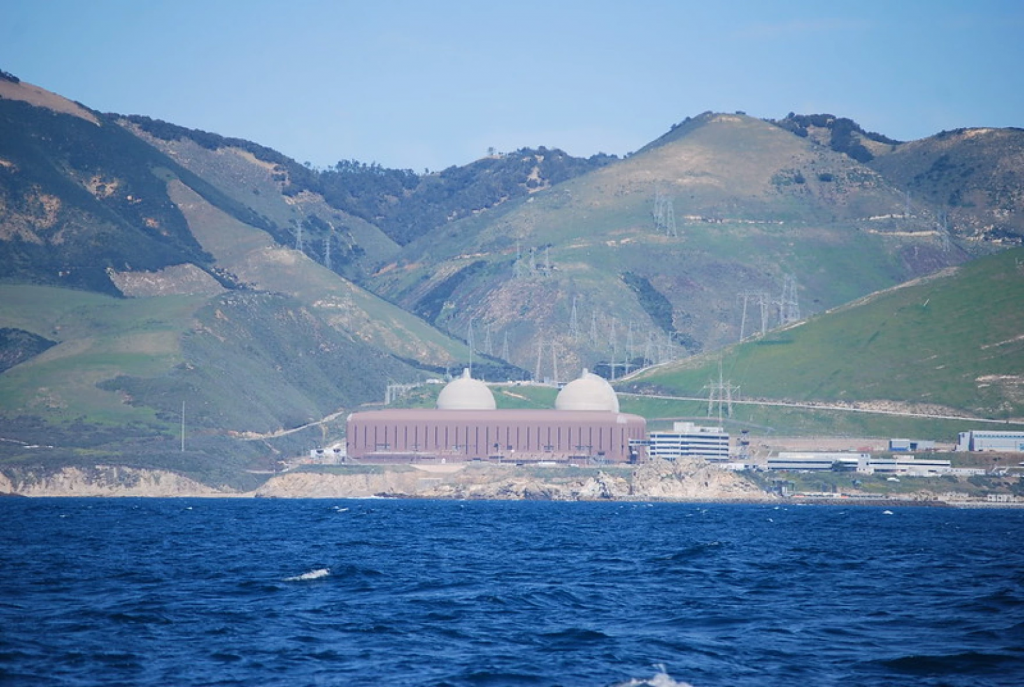
Today I’m doing double duty on KALW 91.7 FM San Francisco Bay Area. First, at 10am PT, I’ll be guest hosting Your Call’s One Planet Series, where we’ll discuss ConocoPhillips’ massive oil and gas Willow Project in Alaska’s fragile western Arctic. Joining us will be Adam Federman, investigative reporter and a reporting fellow with Type Investigations, and the author of Fasting and Feasting: The Life of Visionary Food Writer Patience Gray.
Then in the second half of the program, we’ll cover the Biden administration’s recent $1.1 billion lifeline to California’s last nuclear power plant at Diablo Canyon. Sammy Roth, climate and energy reporter at the Los Angeles Times and writer of the weekly Boiling Point newsletter, will explain the situation.
Then on State of the Bay at 6pm PT, my co-host Grace Won will interview me over my recent trip to Egypt for the just-concluded UN climate conference. I’ll explain what happened at the conference and provide some analysis on what it means for the climate fight. Then later in the program you’ll hear Grace’s interview with former Fox News host Gretchen Carlson about her efforts to combat sexual harassment in the workplace.
Tune in at 91.7 FM in the San Francisco Bay Area or stream live at 10am PT for Your Call and then again at 6pm PT for State of the Bay. What comments or questions do you have for our guests? Call 866-798-TALK to join the conversation!

California made history this year when Governor Newsom signed a long-sought reform to deregulate local parking requirements on infill projects (as I blogged about back in September). But could one provision of the new law undermine its effect on the ground?
The issue is a provision in AB 2097 (Subdivision 65863.2(f), for anyone following along at home) that ostensibly exempts from this law any local requirements for electric vehicle charging installations in multifamily dwellings or commercial properties or to allow accessibility to persons with disabilities. In other words, if a local government required not just parking (which would now be illegal under the new state law) but also parking specifically for EVs and those with disabilities, what happens to that second part of the requirement?
The implications are significant. A city with such an EV or disability-access requirement on the books could potentially argue that developers will still need to provide some minimum parking that has these features. In fact, they could use the requirements as a backdoor parking mandate where none otherwise now exists. While most people support EV charging and disabilities access requirements for parking spots, doing so in the context of this legislation would clearly contradict the intent and plain language of the law.
When AB 2097 passed, it specifically deregulated parking mandates that typically come from local zoning codes, which have traditionally required developers to build a certain number of parking spaces for each housing unit and/or each 1,000 square feet of building area. EV and ADA parking requirements, however, usually come from a different section of local requirements, namely the building codes. Often these require that a certain percentage of any parking spots meet the additional standards of offering electric vehicle charging and/or accessibility. Crucially, building codes do not usually require that developers build any amount of parking—just that when they do, the parking meets certain standards.
In response, AB 2097 specifically preserved these building-code percentage standards in order to ensure that any parking provided at least advances sustainability and accessibility goals. But the provision was not meant to provide an easy out for local governments to circumvent the law’s fundamental goal of ending parking mandates near transit. Otherwise, cities could simply mandate a minimum number of parking spaces that must include electric vehicle charging (a percentage of which would by law also be handicap-accessible), and then AB 2097 would cease to have any effect at all.
So take a city that requires 30% of all required parking to have an EV charger. In that instance, they might argue that AB 2097 in fact only bans 70% of the parking mandate. Following that logic, if the city mandated 100% of spaces must include EV charging, then AB 2097 would effectively ban zero percent of parking mandates. That outcome would completely negate the purpose and impact of the new law.
The effect could be detrimental to infill projects. Imagine a small-lot developer who wouldn’t otherwise build any parking spots on a site under AB 2097. If cities now insisted that the developer provide EV charging and disabilities access, the developer would have to build parking where none was contemplated. That means providing two discrete accessible paths of travel from the street: one from the sidewalk and one from a parking facility that wouldn’t otherwise be there. This outcome would likely lead to developers continuing to orient buildings around parking spots rather than pedestrian, bicycle and transit access.
Instead, the only defensible read of the provision is that if a city requires a certain percentage of parking spots to have EV charging and be accessible to those with disabilities, those percentages should still apply: but only if the developer decides to build any parking at all. If the developer opts out of on-site parking, then a percent of zero is zero. If the developer wants to provide only half the parking that would have been locally required under the old regime, then the number of EV and disabilities-accessible spots should be halved.
Ultimately, the point of AB 2097 was to reduce dependence on automobiles, enhance access to buildings by non-vehicle modes, and lower the cost of building all types of housing near transit. If there’s parking, then open it to EVs, those with disabilities, and other local requirements. But if none exists, local governments shouldn’t force requirements that run afoul of the law.
We’ll see if cities with these requirements try to exploit this provision. If so, it may take some state agency guidance to make this point, or worst case clean-up legislation to clarify. Otherwise, one of California’s most important climate and land use bills could face some unfortunate headwinds on implementation.

Tonight on State of the Bay, we’ll get election eve analysis from UC Berkeley Institute of Governmental Studies (IGS) pollster Mark DiCamillo.
Plus we’ll explore California’s new proposed regulation to phase out fossil-fuel trucks, as well as the concerns that both environmental groups and trucking businesses have about it. Guests include:
- Sam Wilson, Senior Vehicles Analyst, Union of Concerned Scientists
- Daniel Sperling, California Air Resources Board member, director of the Institute of Transportation Studies at the University of California, Davis
- Chris Shimoda, Senior Vice President of Governmental Affairs, CA Trucking Association
Finally, we discuss a new documentary on efforts to cure Type 1 Diabetes called The Human Trial with filmmakers Lisa Hepner and Guy Mossman.
What would you like to ask our guests? Post a comment here, tweet us @StateofBay, send an email to stateofthebay@kalw.org or leave a voicemail at (415) 580-0718.
Tune in tonight at 6pm PT on KALW 91.7 FM in the San Francisco Bay Area or stream live. You can also call 866-798-TALK with questions during the show.
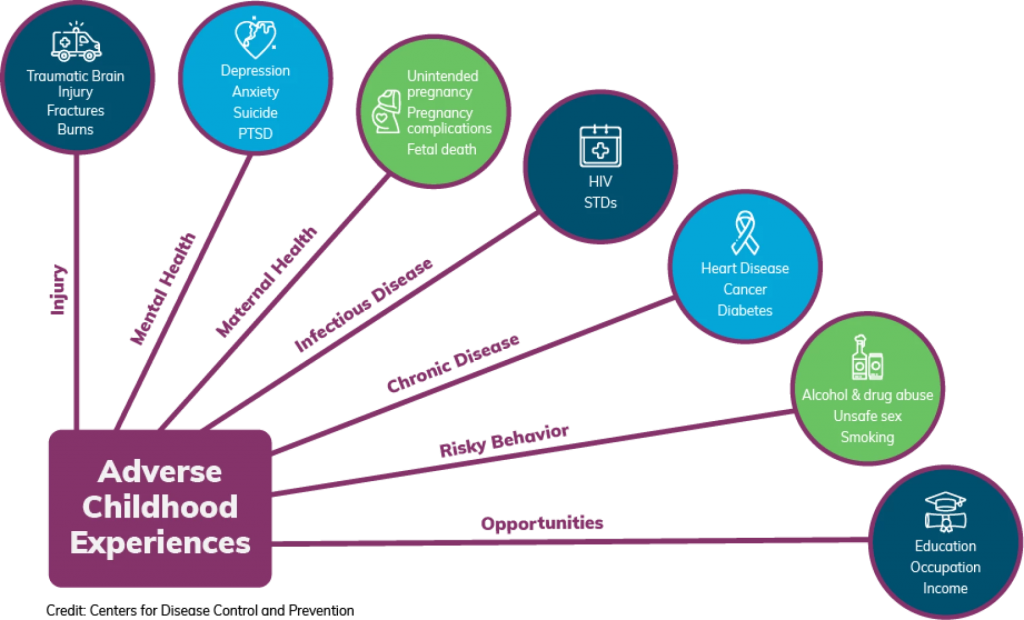
On tonight’s State of the Bay, we discuss Proposition 30, which would tax the wealthy to fund wildfire mitigation and electric vehicles. Why are Governor Newsom and the teachers unions against it? How will you vote? Joining us is Sammy Roth, staff writer for the Los Angeles Times covering energy.
Then we’ll focus on Adverse Childhood Events (aka ACEs), which have been linked to poor mental and physical health as adults. How can we mitigate these negative effects? What are recent studies showing? What policies are in place to protect our children? Our guests include:
- Dr. Dayna Long, pediatrician, researcher and director of Community Health and Engagement at UCSF
- Dr. Nicole Bush, Associate Professor, Psychiatry UCSF Weill Institute for Neurosciences and clinical researcher
Finally, we’ll interview Maryam Qudus, also known as Spacemoth, as she discusses her debut album No Past No Future.
What would you like to ask our guests? Post a comment here, tweet us @StateofBay, send an email to stateofthebay@kalw.org or leave a voicemail at (415) 580-0718.
Tune in tonight at 6pm PT on KALW 91.7 FM in the San Francisco Bay Area or stream live. You can also call 866-798-TALK with questions during the show.
A new CLEE report discusses policy solutions to reduce aviation emissions in California. Register for our webinar on this topic on Monday, November 7th, 9-10am PT.
What actions can California policy makers take to help decarbonize the aviation sector? UC Berkeley Law School’s Center for Law, Energy and the Environment (CLEE) is releasing a new report today, Clean Takeoff: Policy Solutions to Promote Sustainable Aviation in California, which offers recommendations for progress.
Airplane travel is responsible for more than 2 percent of global carbon dioxide (CO₂) emissions, with non-CO₂ emissions raising the total climate impact further. While no existing zero-emission technologies can power all flights today, sustainable aviation fuel represents the most promising and immediate solution to reduce aviation emissions — and it will remain key to decarbonizing long-haul aviation, even in 2050.
In response, Governor Newsom called for a 20 percent clean fuels target for the aviation sector in July 2022, and the steps described in Clean Takeoff could help the state achieve those goals while maximizing air quality and economic co-benefits in communities near airports and production facilities.
Based on input from a stakeholder convening of industry leaders, advocates, academics and other stakeholders, Clean Takeoff recommends that state leaders, including the governor, Air Resources Board and legislature, boost in-state sustainable aviation fuels by:
- Developing a comprehensive long-term plan to decarbonize in-state aviation fuels by a firm deadline
- Taxing or levying a carbon fee on conventional aviation fuel and using the proceeds to fund research and development, where consistent with federal law
- Creating a standalone, mandatory low carbon fuel standard exclusively for aviation fuels, where consistent with federal law
- Implementing permit-streamlining pathways for priority sustainable aviation fuels
- Drafting a comprehensive sustainable aviation fuel feedstock sustainability framework
- Facilitating offtake agreements, contracts-for-differences (where the government pays the fuel producer any difference between the market price and a contractual floor for a set period of time), low-interest loans, and commercial partnerships to boost sustainable aviation fuel supply and demand
In addition to boosting near-term sustainable aviation fuel, these actions can simultaneously support development of long-term solutions, such as electrification, hydrogen fuels, and improved airframe design, among others.
Ultimately, California is well positioned to advance these technologies and fuels, given its pioneering role developing programs that have boosted on-road zero-emission vehicles, as well as its position as a major economy with 12 international airports and numerous in-state flights.
To achieve this vision, state leaders will need to engage all stakeholders, including airlines, airports, affected communities, labor, and agricultural leaders, in order to boost a market for sustainable aviation that can scale globally.
To learn more, register for our free webinar on Monday, November 7, 9-10am PT, featuring:
- Dan Adler, California Infrastructure and Economic Development Bank
- Nikita Pavlenko, The International Council on Clean Transportation
- Erin Cooke, San Francisco International Airport
Read Clean Takeoff: Policy Solutions to Promote Sustainable Aviation in California
This post was co-authored by Katie Segal.
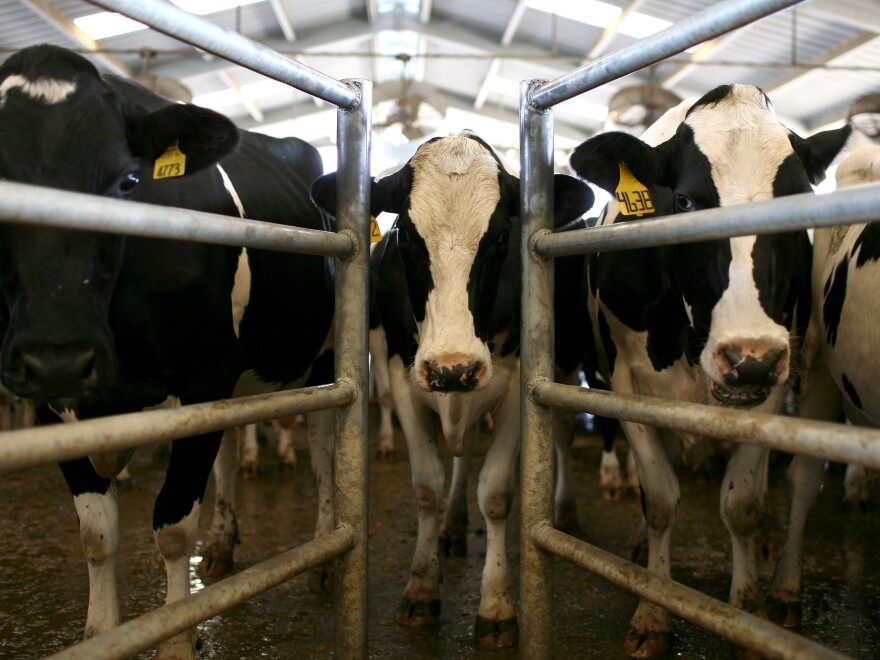
Tonight on State of the Bay, we’ll dive into California’s dairy industry and what is needed for policymakers and businesses to meet state methane emissions goals. It’s a topic we covered in our recent Berkeley/UCLA Law report Ahead of the Herd. We’ll be joined by:
- Albert Straus, Founder and CEO of Straus Family Creamery and
- Jamie Katz, Staff Attorney for Leadership Council for Justice and Accountability.
Plus we’ll discuss the campaign to legalize sports betting in California, which has become the most expensive ballot initiative fight in US history with Ari Plachta, Political Enterprise Reporter for the Sacramento Bee.
Finally, we’ll explore a piece of history at San Francisco’s First Responders Museum with Jim Lee, Veteran San Francisco Firefighter and Board Chair of the Guardians of the City.
What would you like to ask our guests? Post a comment here, tweet us @StateofBay, send an email to stateofthebay@kalw.org or leave a voicemail at (415) 580-0718.
Tune in tonight at 6pm PT on KALW 91.7 FM in the San Francisco Bay Area or stream live. You can also call 866-798-TALK with questions during the show.

